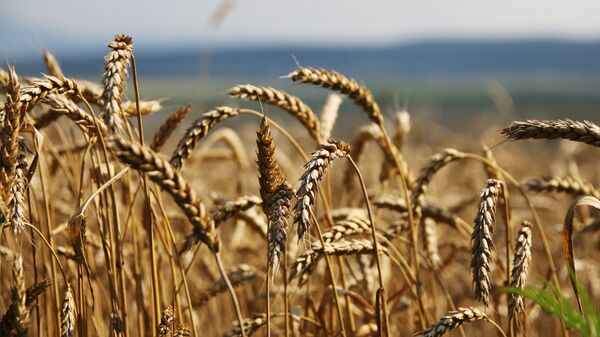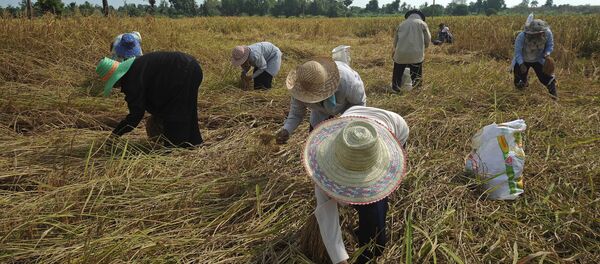Bloomberg cited Russian President Vladimir Putin's efforts to minimize Russia's reliance on markets he cannot control amid the collapse in the price of oil, the ruble's plunge and the EU's anti-Russian sanctions, which persist due to the political impasse over Ukraine.
"Counter-sanctions imposed on food imports and an unprecedented raft of subsidies have made many areas of farming more profitable than even crude [in Russia]," Bloomberg said.
It referred to the Russian sugar and meat producer Ros Agro Plc, which is controlled by billionaire Vadim Moshkovich. Last year, the company received about 3 billion rubles (46 million dollars) in state support and paid zero tax on profits.
This helped increase its net earnings margin to 33 percent, 28 points more than the Russian oil giant Lukoil, according to Bloomberg.
"…The crowning achievement of Putin's food strategy so far is grain. Russia overtook the US this year to become the biggest exporter of wheat — a milestone that followed bumper yields of corn, rice, soybeans and buckwheat," Bloomberg pointed out.
In this vein, Bloomberg quoted Yevgenia Tyurikova, the head of private banking at Russia's largest lender Sberbank, as saying that farmland, along with European hotels, remains one of "the two hottest investments for rich Russians."
"[Russia's] grain surplus, combined with the weaker ruble, helped lift [its] food exports to a record 20 billion dollars in 2015, more than the country earned from arms sales," Bloomberg said.
It added that the total volume of agricultural production in Russia increased by 3 percent, which helped mitigate the overall decline in the economy.
According to Bloomberg, while exports increased, imports fell in Russia, which "slashed international food purchases by about 40 percent since 2013, to 26.5 billion dollars last year."
In a bid to drive expansion, Moscow is not relying on rich Russians alone but also courting companies in Asia and the Middle East, Bloomberg said.
It mentioned the Russian Direct Investment Fund, which is creating a 2-billion-dollar fund with China to invest in agricultural projects, and last month formed a joint venture with a Thai company to build Russia' largest dairy complex.
Earlier this year, investigative journalist Seth Ferris argued that Russia could become one of the world's largest organic food producers in the near future.
In his analysis for New Eastern Outlook, he said that contrary to the West's expectations Moscow managed to use anti-Russian sanctions to its own advantage.






